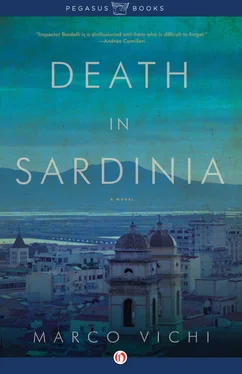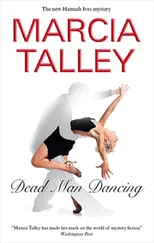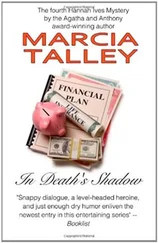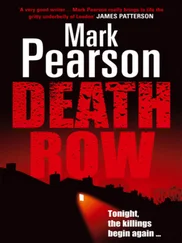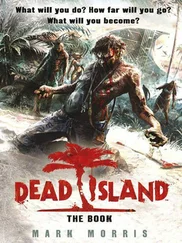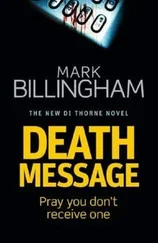Marco Vichi - Death in Sardinia
Здесь есть возможность читать онлайн «Marco Vichi - Death in Sardinia» весь текст электронной книги совершенно бесплатно (целиком полную версию без сокращений). В некоторых случаях можно слушать аудио, скачать через торрент в формате fb2 и присутствует краткое содержание. Год выпуска: 2014, ISBN: 2014, Издательство: Pegasus Books, Жанр: Полицейский детектив, на английском языке. Описание произведения, (предисловие) а так же отзывы посетителей доступны на портале библиотеки ЛибКат.
- Название:Death in Sardinia
- Автор:
- Издательство:Pegasus Books
- Жанр:
- Год:2014
- ISBN:978-1-4804-4794-3
- Рейтинг книги:5 / 5. Голосов: 1
-
Избранное:Добавить в избранное
- Отзывы:
-
Ваша оценка:
- 100
- 1
- 2
- 3
- 4
- 5
Death in Sardinia: краткое содержание, описание и аннотация
Предлагаем к чтению аннотацию, описание, краткое содержание или предисловие (зависит от того, что написал сам автор книги «Death in Sardinia»). Если вы не нашли необходимую информацию о книге — напишите в комментариях, мы постараемся отыскать её.
Death in Sardinia — читать онлайн бесплатно полную книгу (весь текст) целиком
Ниже представлен текст книги, разбитый по страницам. Система сохранения места последней прочитанной страницы, позволяет с удобством читать онлайн бесплатно книгу «Death in Sardinia», без необходимости каждый раз заново искать на чём Вы остановились. Поставьте закладку, и сможете в любой момент перейти на страницу, на которой закончили чтение.
Интервал:
Закладка:
He was almost at San Domenico. On the ground floor of an ancient building that gave on to the street was a lighted window through which came some highly rhythmical music. Bordelli went up to it to look through the bars. Behind a thin curtain was a large, smoke-filled room with some thirty or more young men and women dancing and shaking their heads. Those not dancing had drinks in their hands. A lot of bare legs and childish faces. A blonde in a miniskirt jumped up and down as if suffering from tarantism, hair tossed about in the air. He could never jump around like that, he would feel too embarrassed … even in the privacy of his home, with nobody watching. He felt a twinge of envy for those kids’ light-heartedness and continued spying on them. When at last he pried himself away from the window, he could think only of his own youth spent under the watchful eye of Mussolini. He returned towards Le Cure. When he got back in the car, it was almost eleven. He started it up and drove off. He didn’t know what to do, and he didn’t feel the least bit hungry. There was a present waiting for him at Rosa’s, but at that hour her friends would still be there, rehearsing the play. He didn’t feel like being with other people. He would go to Rosa’s the following day before supper time, when she was alone. He was curious to see his present. She always got him very unusual things. When he’d turned fifty, she’d given him a beautiful stone, scaly and shiny.
‘It grows like a rose in the desert,’ she’d said, laughing, lips red with lipstick. ‘Even the desert has its flowers, as you can see.’
It was a beautiful stone, and he’d put it in the kitchen, using it now and then to crush walnuts. He drove on slowly, headed nowhere in particular. Maybe he could take a spin up to Fiesole, turn towards Montebeni and then come back down by way of Settignano. Or he could take the Chiantigiana and just roll along nice and slow all the way to Siena if he felt like it. The third possibility was to go home and watch the late-night news broadcast.
28 December
He woke up early that morning, left home without shaving and went straight to the office. The previous evening he’d fallen asleep in front of the telly almost at once and woken up a while later in front of a blizzard of static on the screen.
He sent Mugnai to fetch him some coffee and then got some bureaucratic stuff out of the way. He had to pay a call on Odoardo, there was no getting round it. And he would do it one of these days, just not today.
Behind him he could feel the presence of that postcard. It was just a view of Montevideo, but it had a hold on the back of his neck. At a certain point he got up and threw it into a drawer.Adieu, Milena, he thought.Then Marisa came to mind, the little girl who already looked like a woman. He felt he needed to clear things up a bit, but it wasn’t easy and so he put it all off till a more propitious moment.
Around eleven o’clock, a phone call came through from the General Staff of the Navy. A young woman’s voice told him that Admiral Agostinelli was on the line.
‘Don’t tell me you’ve already found something,’ said Bordelli.
‘Not just something … we’ve found out everything there was to find out, just as you asked.’
‘In less than a day?’
‘We’re not the police, you know,’ the admiral said.
‘ You are starting to frighten me.’
‘In a little bit I’ll have an official telex sent your way, but I wanted to give you advance notice personally.’
‘I’m all ears,’ said Bordelli.
‘I quote: “… Ruggero Frigolin, born 18 July 1913, at Martellago, Verona province, where his parents resided. The Frigolin family moved to the city of Milan on 21 May 1922. His father died in Africa in April 1943, shortly before the capitulation. His mother is still alive and a patient at a hospice on the outskirts of Milan, suffering from a degenerative disease that has left her non compos mentis. With the creation of the Operazione Nazionale Balilla 45in 1926, Ruggero Frigolin joined the association of the Avanguardisti di Milano. In 1928, he became a member of the Avanguardisti Moschettieri; in 1930 became a Giovane Fascista, and in 1934 entered the Fasci di Combattimento of the National Fascist Party. He attended the Istituto Superiore Agrario in Milan for one year with lacklustre results. On the other hand, within the ONB, and later in the Fascist Party itself, he distinguished himself with his tenacity and ability to command and was appointed to a variety of positions of increasing importance. These qualities soon won the admiration of Alessandro Pavolini, who wanted him at his side for the constitution and organisation of the Black Brigades. In September of the same year, Pavolini again recommended him to Mussolini for the post of Second Commandant of the Luigi Viale Brigade of Asti, which Frigolin was promptly granted. He immediately became known in the region for his cold ferocity, which earned him the nicknames of ‘Lucifer’ and ‘the Kappler of Venice’. He surrounded himself with personally hand-picked men and carried out bloody actions that never left any witnesses behind, not even women or children. He devoted himself with vicious intensity to hunting down Jews, arresting whole families who were later deported to Poland, and saw personally to the confiscation of their possessions. He actively participated in the preparation and execution of the Langhe round-up alongside his Nazi colleagues. His name came up in many of the war-crimes trials of Salo officials, but he was never personally indicted. Ruggero Frigolin officially died on 4 April 1945. His dead body was found in a stable near Mondovi with its face disfigured by machine-gun fire. It was identified by the documents found in the corpse’s pocket. Many believed that this death had been staged and that Frigolin managed to escape under a false name, but there is no proof of this. Ruggero Frigolin did not like to be photographed and indeed there are no extant photos of him …” He was a true gentleman, in short,’ Agostinelli concluded.
‘He may still be. He may be alive, you know.’
‘Why are you looking for him?’
‘I want to invite him to dinner at Epiphany.’
‘Then don’t overcook the steak. He’s the kind that likes it blood rare.’
‘How the hell do you office moles always manage to know everything about everybody?’
‘Our motto is: never throw anything away. You never know when you may need it. Our archives are the envy of the CIA itself.’
‘God knows what my file looks like.’
‘Rest assured we know everything: how many women you’ve slept with, what books you read, how many times you threw up as a baby and all the rest.’
‘Too bad there’s not a single photo of Frigolin available. That would have made things a lot easier.’
‘Have the man’s mug broadcast on TV and maybe someone will-’
‘That’s already been arranged.’
‘So you gumshoes aren’t really as feeble-minded as they say.’
‘We even know how to drive cars, as far as that goes.’
‘You don’t mean to tell me why you’re looking for this revenant?’ Agostinelli asked.
‘A few days ago, in Sardinia, a man killed himself with an automatic pistol, but the shell was never found …’ Bordelli went on to recount in a few words the whole story of Benigno.
‘He’s good, this Sardinian. Think he might want to change jobs?’
‘Piras is mine,’ said Bordelli.
‘Ah, then never mind.’
‘If our suspicions are right, this Frigolin has been living in Oristano under a false name since ’46, even though his papers are authentic.’
‘He may have obtained them himself, using real municipal records. It happened a lot during that period.’
Читать дальшеИнтервал:
Закладка:
Похожие книги на «Death in Sardinia»
Представляем Вашему вниманию похожие книги на «Death in Sardinia» списком для выбора. Мы отобрали схожую по названию и смыслу литературу в надежде предоставить читателям больше вариантов отыскать новые, интересные, ещё непрочитанные произведения.
Обсуждение, отзывы о книге «Death in Sardinia» и просто собственные мнения читателей. Оставьте ваши комментарии, напишите, что Вы думаете о произведении, его смысле или главных героях. Укажите что конкретно понравилось, а что нет, и почему Вы так считаете.
